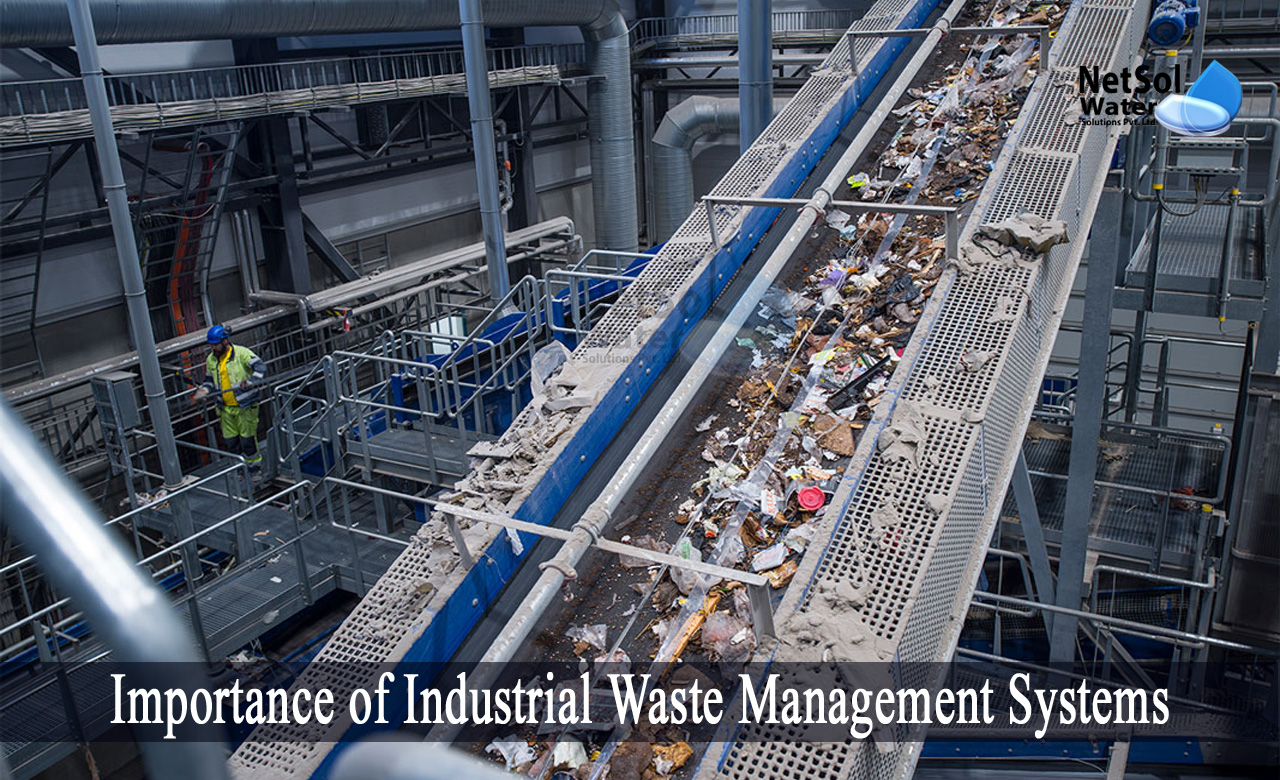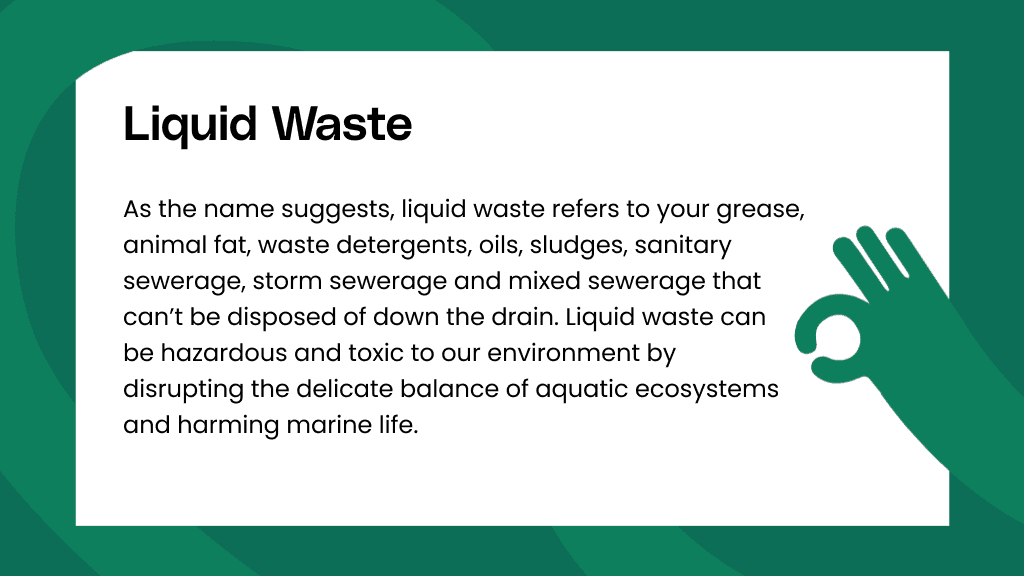See This Report about Reclaim Waste
Table of ContentsA Biased View of Reclaim WasteReclaim Waste Fundamentals Explained7 Simple Techniques For Reclaim WasteReclaim Waste Things To Know Before You BuyThe Only Guide to Reclaim Waste
Explore the types, occurrences, and forms of fluid waste. Domestic sewer waste describes the waste and products from a household sewage-disposal tank. This sort of waste is produced by humans in residences, colleges, and other structures. This only consists of septic tanks that have a drain field. The proper monitoring and disposal of residential sewer waste need liquid waste to be transferred to a sewage treatment plant where the appropriate methods and devices are put on cleanse and throw away waste.
Industrial waste often includes possible hazards, such as flammable products or a mix of fluid and strong waste products, and requires a much more innovative and in-depth disposal procedure. The disposal of commercial waste commonly includes the purification of waste before transport to ensure safe and correct disposal. Hazardous waste is created from by-products and runoff of industrial procedures and production.
This kind of waste can not make use of the very same sewage monitoring transportation or processes as septic or industrial fluids. The industrial waste administration process needs the evaluation and screening of liquid waste before it goes through the disposal procedure (liquid waste removal melbourne). Overflow waste is the liquid waste that comes from runoff and excess stormwater in highly populated locations or cities
Drainage waste can create contamination and flooding otherwise handled properly. Learn much more regarding drain cleaning and waste administration. Making certain correct waste administration can avoid disasters and lower environmental injury. Both people in property setups and experts in business or manufacturing sectors can take advantage of recognizing the processes and policies of liquid waste management.
Our Reclaim Waste Statements
Get in touch with PROS Providers today to discover concerning our waste administration and disposal services and the appropriate ways to take care of the liquid waste you generate.
Do you know what occurs to your water when you end, flush the commode or drain pipes the cleaning maker? No? Well, it deserves recognizing. This supposed 'wastewater' is not just an important source but, after therapy, will be launched to our land, waterways or the sea. Utilized water from toilets, showers, bathrooms, kitchen area sinks, laundries and commercial processes is referred to as wastewater.

water utilized to cool down machinery or tidy plant and equipment). Stormwater, a kind of wastewater, is overflow that moves from farming and metropolitan locations such as roof coverings, parks, gardens, roadways, courses and rain gutters right into stormwater drains, after rain. Stormwater streams untreated directly to regional creeks or rivers, eventually getting to the sea.
The Definitive Guide to Reclaim Waste
In Queensland, most wastewater is dealt with at sewage treatment plants. Wastewater is moved from residential or commercial sites via a system of drains and pump terminals, referred to as sewerage reticulation, to a sewage treatment plant. City governments develop, maintain and run most sewer treatment plants. Operators are licensed under the Environmental Security Act 1994 to release cured wastewater at an acceptable environmental requirement into waterways.
The Division of Natural Resources recommends city governments regarding managing, operating and preserving sewerage systems and treatment plants. In unsewered locations, city governments might call for homeowners to set up individual or household sewer therapy systems to treat domestic wastewater from commodes, kitchens, shower rooms and washings. The Division of Natural Resources authorizes the use of house systems when they are confirmed to be reliable.
In some brand-new subdivisions, therapy of some stormwater to remove clutter, sand and crushed rock has begun utilizing gross pollutant catches. Wastewater treatment takes place in four phases: Removes strong issue.
Wastewater after that flows right into huge storage tanks where solids settle and are removed as sludge. Oil and scum are skimmed from the surface area. Utilizes small living organisms referred to as micro-organisms to damage down and get rid of continuing to be liquified wastes and great particles. Micro-organisms and wastes are integrated in the sludge. Gets rid of nitrogen and phosphorus nutrients that might trigger algal blossoms in our waterways and threaten water life.
Reclaim Waste Things To Know Before You Get This
Nutrient removal is not offered at all sewer therapy plants because it requires costly specialist equipment. Clear fluid effluent produced after therapy might still contain disease-causing micro-organisms - liquid waste disposal.

This generally means wastewater needs to be dealt with or impurities eliminated before it can be discharged to waterways. The majority of wastewater flows right into the sewage system. Under the Act, city governments provide approvals and permits for eco appropriate tasks (Periods) including wastewater launches that may have a neighborhood impact. The division provides approvals and licences to Periods including wastewater Recommended Reading releases that could have a regional or statewide impact.
The Single Strategy To Use For Reclaim Waste
Otherwise, examples are taken for lab evaluation. Typically several tests are required to establish the degrees of each of the various pollutants such as oils, hefty steels and chemicals in water. Tracking gives factual details regarding water high quality and can validate that permit problems are being met. The information acquired with surveillance provides the basis for making water quality choices.
Comments on “What Does Reclaim Waste Mean?”